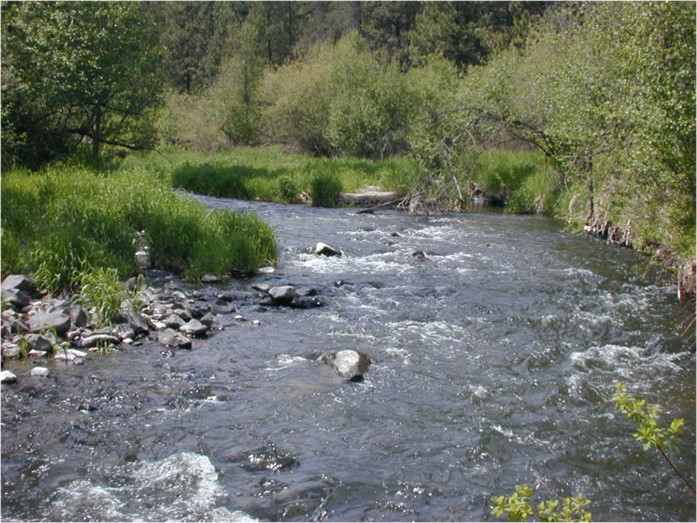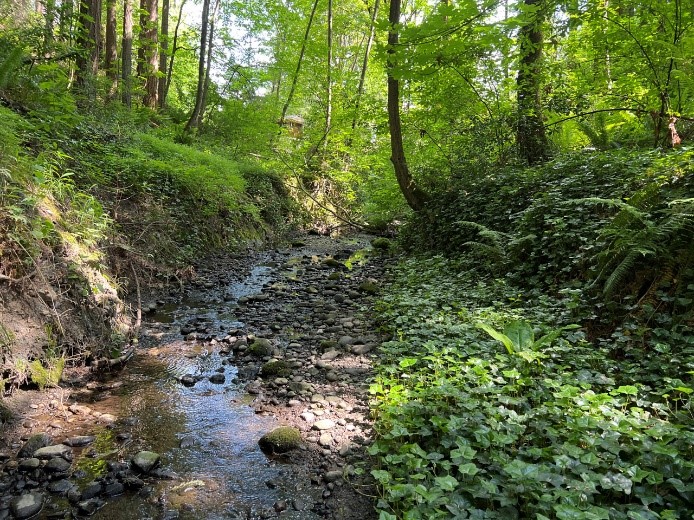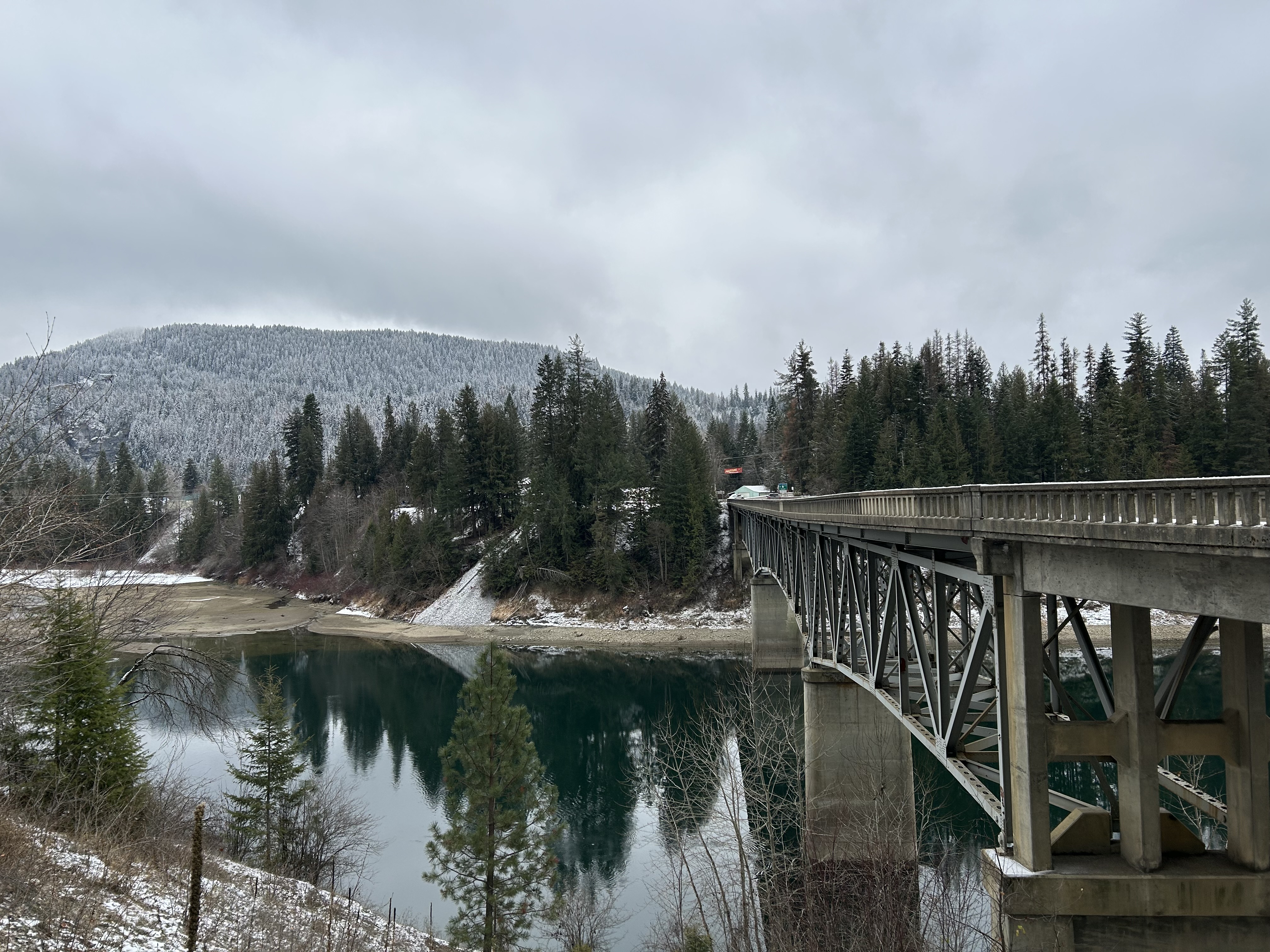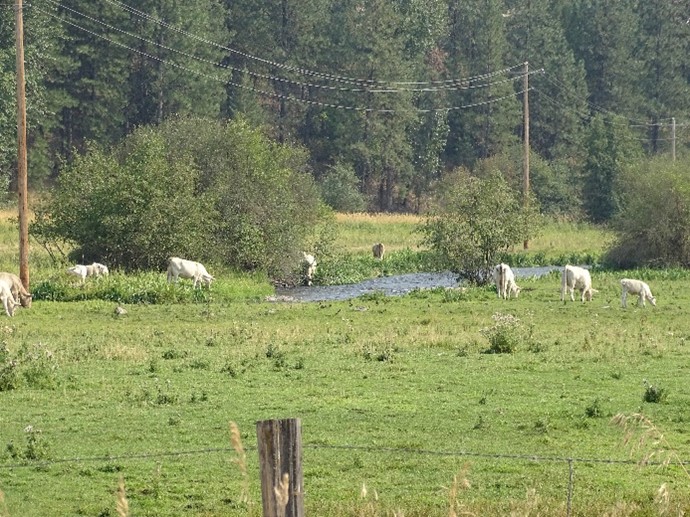
Every December, our grants and loans team reviews and ranks applications for funding in preparation for our draft offer list of clean water projects we hope to fund in the next fiscal year. During this application cycle, we screened 155 applications with $565 million in eligible funding requests. After review, we're proposing to award $175.5 million for 102 high-priority clean water projects across the state.
The funding amounts in the draft offer list are estimates and may change based on the Washington State Legislature's final 2025-27 Biennial Budget and funding available from the federal government. Due to recent federal government actions, disbursement of some federal funding may be paused or reduced. This could impact projects on the draft list. We’ll reflect any changes in funding when we share our final list by July 1, 2025, and continue to share timely information with our funding applicants and recipients.
Funding clean water projects supports communities
Funding wastewater and stormwater infrastructure projects are some of the many ways we support communities. Our clean water funding also supports projects that prevent and clean up nonpoint pollution, or sources of pollution without a single source. Our funding comes from a mix of state and federal funds dedicated to water quality improvements and protection.
Grant and loan offers of more than $12 million receive Environmental Justice Assessments under Washington’s Healthy Environment for All (HEAL) Act (RCW 70A.02). These assessments are intended to help us fairly distribute environmental benefits and address environmental and health inequalities. An environmental justice assessment includes consultation with Tribes and outreach to people at high risk for poor health due to environmental conditions and socio-economic vulnerabilities. This year, two projects have proposed funding offers over $12 million:
Sewage pump replacement for King County Natural Resources & Parks Department
Proposed funding: $28.6 million in loans
This project will protect water quality in Elliott Bay by designing essential improvements at the West Point Treatment Plant in King County to avoid the discharge of untreated wastewater.
Ship Canal Water Quality Project for City of Seattle Public Utilities
Proposed funding: $28.6 million in loans
This project will reduce the volume and frequency of combined sewer overflows discharging into the Lake Washington Ship Canal between Ballard and Wallingford and improve water quality, public health, and the health of the aquatic ecosystem.
For more information and to provide input on these Environmental Justice Assessments, please contact Faith Wimberley, Water Quality Environmental Justice Planner at faith.wimberley@ecy.wa.gov. Learn more about our approach to understanding the environmental justice considerations of our work on our environmental justice webpage.
Two new funding sources support stormwater projects
This year we are excited to introduce two new stormwater funding sources to the Water Quality Combined Fund: Community-Based Public-Private Partnerships (CBP3), and Stormwater Grants of Regional or Statewide Significance.
Community-based public-private partnerships are partnerships between a local government and a private entity to plan, build, or maintain public stormwater projects. The goal of these partnerships is to improve stormwater management and meet regulations while providing additional benefits to the community.
In 2018, the Washington State Department of Commerce completed a CBP3 feasibility assessment and recognized that these partnerships could help meet the needs of many stormwater permittees around the state. These partnerships capitalize on the strengths of public and private-sector participants to unlock financial resources, reduce the risk of project failure, and maximize the project’s timeline. However, most communities do not have the in-house expertise or resources needed to initiate the development of a stormwater CBP3. Our goal is to make stormwater CBP3 and performance-based contracts more accessible to all communities, including small and under served communities.
The Stormwater Grants of Regional or Statewide Significance program addresses regional or statewide needs and provides financial support that benefits multiple municipal stormwater permittees by helping them meet permit requirements. This funding source is unique because it encourages permittees with similar needs to collaborate to avoid duplicating efforts. This program receives state funding.
Potential clean water projects
Community-based public-private partnership grants
We plan to award approximately $2 million in grants for six CBP3 projects, including funding for Clark County Public Works, City of Tukwila, and the City of Kirkland.
Clark County Public Works is set to receive $356,989 in grant money to build performance-based partnerships to address maintenance needs for their bioretention stormwater facilities.
Devan Rostorfer, Clean Water Division Manager for Clark County Public Works, shared her thoughts on the importance of this funding:
“Clark County is excited to utilize innovative Community-Based Public-Private Partnership funding to partner with the community and the private sector to achieve environmental, social, and economic benefits. This program will help us address critical maintenance needs on our 600 county-owned bioretention facilities and help ensure the facilities are functioning as they were intended to by removing pollutants in stormwater runoff to protect and restore water quality in our local rivers, streams, and lakes.
With funding from Ecology’s CBP3 program, we are excited to explore new partnership and training opportunities for landscape professionals to learn the more advanced and technical maintenance skills necessary to maintain vegetated stormwater best management practices. This is especially critical as Clark County continues to identify and implement more nature-based solutions for stormwater management.”
The City of Tukwila is eligible for a grant of $602,150 to address stormwater drainage issues affecting private property, public right-of-way, water quality, and fish passage in Southgate Creek. This creek is in an industrial business park currently experiencing stormwater flow control and water quality related drainage problems. The project proposal focuses on community outreach to better understand the issues and designing a tailored performance-based contracting solution.
Courtesy of City of Kirkland
The City of Kirkland is eligible to receive $348,439 in grants to improve water quality and provide community benefits in the Juanita Creek Watershed. The project will focus on conducting an evaluation and planning process for a CBP3 in the Central Kingsgate area of Kirkland. This work will include evaluation of potential redevelopment scenarios, placement of regional stormwater management facilities, outreach and discussion with potential CBP3 consultants, and evaluation of legal aspects of a contract and project. These tools will lay the groundwork for installing stormwater facilities as part of overall redevelopment of this community center. A CBP3 in this area will provide improved stormwater management, targeting total suspended solids and high flows, along with additional community benefits in the Juanita Creek Watershed.
“A CBP3 in the Kingsgate neighborhood would support development of a shared vision that includes economic development, open space and recreation needs, and environmental protection through improved stormwater management. CBP3 provides a means of integrating community and environmental goals. The Juanita Creek Watershed would benefit from improved water quality and habitat, and the Kingsgate community would benefit from redevelopment of a vibrant commercial district, which could be incentivized through this planning process.”
Rachel Konrady, Surface Water Planner for City of Kirkland
Wastewater
We’re proposing that 26 wastewater projects receive approximately $114 million in grants, low-interest loans, and forgivable principal loans. Ten of these projects qualify for hardship assistance which helps ease the burden of increased sewer rates for residents in small, financially challenged communities.
Clallam County Public Works is set to receive approximately $10 million in funding for the Clallam Bay-Sekiu Sewer Improvements project to upgrade aging wastewater infrastructure. The goal is to protect water quality in the lower Clallam River and marine habitat in Clallam Bay and the Strait of Juan de Fuca. The project will replace old, damaged sewer lines, fix leaks to prevent system overloads, and meet permit requirements at the Clallam Bay and Sekiu wastewater treatment plants. This continues sewer repair work that began in 2019 with a $6 million grant and loan that repaired other branches of the sewer collection system.
Ron Garcelon of Clallam County Public Works provided this perspective on Ecology's financial support for infrastructure projects:
“[In 2019,] Clallam County Public works received funding to replace more than 7,000 linear feet of 8-inch sewer main, 30 manholes, and over 70 sewer connections for the Town of Sekiu and surrounding areas. This project addressed inflow and infiltration issues resulting in a significant reduction of treatment plant overflows protecting Clallam Bay and the surrounding waters. [Ecology’s] clean-water funding program was essential in our ability to complete this project successfully.”
Metaline Falls lift station
Stormwater
We’ve proposed approximately $43 million in grants and loans to go towards 43 stormwater projects: 7 stormwater activity projects and 36 stormwater facility projects. This includes CPB3 and Stormwater Grants of Regional or Statewide Significance funded projects.
The City of Poulsbo Public Works Department is set to receive approximately $1.3 million from the stormwater financial assistance grant program. The South Fork Dogfish Creek retrofit project will help protect and restore water quality by reducing stormwater impacts and runoff from existing urban infrastructure. Currently, less than 5% of the 14-acre basin’s stormwater runoff is treated to water quality standards. The lack of stormwater treatment has been identified as a significant contributing factor to the poor habitat conditions for aquatic life in South Fork Dogfish Creek and Liberty Bay, which has historically supported coho and chum salmon runs, as well as steelhead populations. The project will provide treatment for total suspended solids, and dissolved copper and zinc through the installation of three modular wetlands and the conversion of existing grass-lined ditches into two bioretention cells.
The City of Bingen, a small community located on the shores of the Columbia River, is set to receive $70,000 in grants and loans to create an approved stormwater plan. Currently, the city’s stormwater flows downhill into Jewett Creek and Dry Creek with no method to collect, channel, or control untreated storm runoff. With the projected growth of Bingen and the concerns about emerging groundwater contaminants, the city will likely need to create a stormwater utility within the next 10 to 20 years. The overall goal of this project is to create an approved stormwater plan for Bingen, which will allow them to pursue funding opportunities to begin work on designing and building stormwater infrastructure. The city’s stormwater plan will include a survey of existing facilities to determine which, if any, stormwater improvements can be made to cost-effectively manage stormwater runoff and preserve the quality of the Columbia River.
Nonpoint
There are 26 projects eligible to receive a total of $11 million in grants to address nonpoint pollution in addition to seven projects tackling onsite sewage systems. Nonpoint pollution comes from dispersed sources instead of an identifiable, single source and has a significant impact on water quality. A couple of nonpoint projects on the draft list this year are the following:
The Lummi Indian Business Council proposed to receive a $494,153 grant for the Skookum Creek Restoration project on the south fork of the Nooksack River. This funding will help the Lummi Nation restore habitat for fish like Chinook, steelhead, and bull trout; species protected under the Endangered Species Act. The project aims to improve the spawning habitat for these fish and address problems such as harmful sediment buildup caused by past forestry practices. To achieve these goals, the plan includes strategically placing log jams to reduce erosion, trap sediment, and improve the natural habitat. Planting trees and shrubs along the river will also help cool the water, reduce erosion, and support long term water quality.
Agricultural field in the Spokane River watershed
Give us your feedback
We are holding a public comment period on the draft offer list from 12 a.m. on Feb. 5, 2025, until 11:59 p.m. on March 7, 2025. Please submit your comments using our online comment form.
Attend our informational meeting
We are holding an informational webinar at 1 p.m. on Feb. 13, 2025, on Zoom to share more information about the draft offer list.
We will respond to all comments received during the comment period and notify all commenters when we publish our final funding list by July 1, 2025.
The funding levels on the draft list are estimates and may change. If the final funding for any of the programs is less than the amounts estimated, we will re-evaluate the number of projects and the amount of funding for each project we can support. Public comments and possible changes in projects may affect the amounts and projects proposed for funding.
More information
For more information, check out our interactive map of funded projects. To view the full draft list, please visit the Water Quality Combined Funding webpage.
If you have questions, please contact Karen Izumoto at karen.izumoto@ecy.wa.gov or 360-628-1976.

